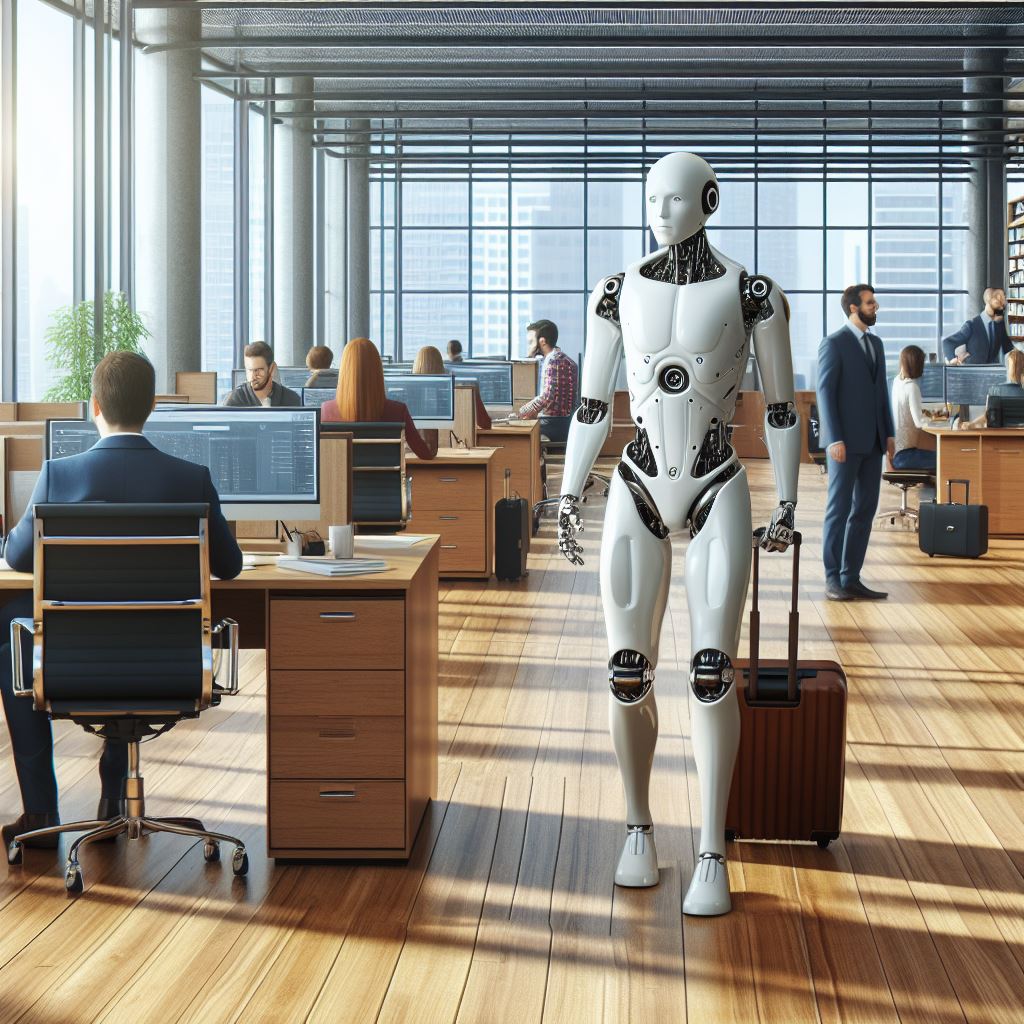
The growing prevalence of artificial intelligence (AI) has stirred concerns about its potential repercussions on employment. As the public became captivated by ChatGPT's ability to mimic human language, questions arose regarding the broader scope of tasks that AI could assume in the workplace.
Shift in Job Landscape: The integration of AI into various industries has led to a surge in demand for AI-focused professionals. Experts predict that AI, akin to the automation of blue-collar jobs in past decades, will now reshape white-collar employment.
Christopher Alexander, Chief Analytics Officer of Pioneer Development Group, notes, "If the types of AI envisioned for the near future won't replace workers, it would make no sense for a company to implement it." A Bently-Gallup Business in Society Study reports that 75% of U.S. adults anticipate a reduction in job opportunities due to AI.
Short-Term Effects: While immediate job displacement might not be palpable, experts warn of potential wage decreases. The European Central Bank suggests that AI's impact on wages could be "neutral or negative" as workers experience reduced workloads.
Phil Siegel, founder of the Center for Advanced Preparedness and Threat Response Simulation, advises workers to adapt by mastering AI tools, enhancing efficiency, and staying informed about upcoming technological innovations.
High Demand for AI-Related Jobs: Companies are actively seeking AI-related expertise, with lucrative job openings, such as a data scientist position in Los Angeles offering a salary of $900,000. California leads in AI-related job opportunities, recording over 20 million searches for AI software in the past year.
AI in Hiring Processes: Some companies are incorporating AI into their hiring processes, using AI interviews for 10% of current job assessments. A Resume Builder survey indicates that 43% of companies plan to use AI in hiring by the next year, raising concerns about potential bias in candidate selection.
Stacie Haller, Chief Career Adviser at Resume Builder, states, "Most managers in our survey agree that it will most likely eliminate candidates that a human or ATS may not." However, the long-term impact on the quality of hires remains uncertain.
Labor Disputes and AI: The entertainment industry, particularly Hollywood writers and actors, engaged in notable labor disputes against the integration of AI. The strikes, lasting 148 and 118 days, contested measures allowing AI to generate scripts and replicate actors' likenesses, potentially reducing production costs.
Despite some concessions, the strikes highlight the inevitability of AI's penetration into diverse industries. Companies like Netflix are actively recruiting AI experts to enhance their platforms, signaling a broader trend toward AI's increasing role in various sectors.
As AI continues to advance, its impact on the job market and workforce becomes increasingly evident, necessitating proactive adaptation and consideration of its implications across diverse sectors.